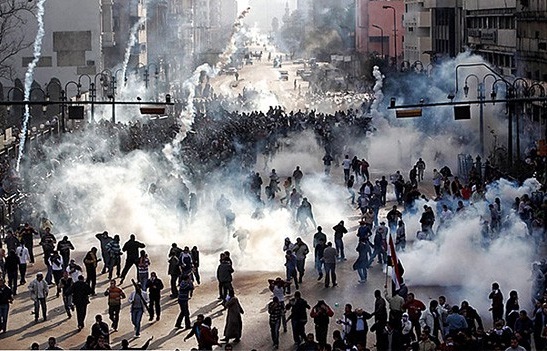
Don’t make the mistake of interpreting the events of Sept. 11 purely in terms of terrorism and murder. There is a bigger context here. There is more to this story — much more. The terrorists are a virulent subset of a much larger group of anti-capitalists, one that includes many politicians, bureaucrats, writers, media types, academics, entertainers, trade unionists and, at times, church leaders.
The barbarians at the gates are more numerous than you thought.
The distinctive feature of their ideology is a bitter hostility toward the West, toward the rule of law and toward the market system. That ideology begins with nasty-minded fantasies of Western exploitation that supposedly produces Third World poverty. It ends with demands for huge international income redistribution and calls to expropriate private property.
The worldwide public’s sorrow and rage over the attacks found few echoes among the anti-capitalist crowd. Defiantly, Bernard Cassen — chairman of protest group Attac France and a spark plug of the assault on the July G-8 meetings in Genoa — was quoted as saying: “Life goes on, and we see no reason to change our analysis or our actions.” How noble.
Closer to home, writer Susan Sontag found it within herself to admire the twisted suicidal thinking that animated the hijackers. She wrote in the New Yorker that “whatever may be said about the perpetrators of Tuesday’s slaughter, they were not cowards.” What an accolade.
Now is the time for President Bush to acknowledge reality and engage not only the terrorists but also the anti-capitalists who are bent on destroying the core of Western civilization. His inspiration should be Ronald Reagan, who reminded the citizenry what they were fighting for and what against. This will prove to be no easy task. Taking on the anti-capitalists will require some straight talk. Namely, that handouts and protectionism, which this bunch champions, are counterproductive.
For a reference, I suggest the recently released book by the World Bank’s William Easterly, The Elusive Quest for Growth (MIT Press, $30). That treatise documents how the West has dished out $1 trillion in foreign aid as grants, debt relief and concessionary loans to the Third World since the 1960s. Coupled with an endless convoy of “expert” advisers from Easterly’s employer and the International Monetary Fund, the effort has been a monumental flop. Much of Latin America, Asia and sub-Saharan Africa are economic weaklings, despite all the aid, writes Easterly, thus upsetting his bosses at the World Bank.
When the World Trade Organization’s meetings convene in Doha, Qatar on Nov. 9, the United States must stand up for free trade, the essence of capitalism. It should insist that the meetings not get upended by unelected anti-capitalists, as did the 1999 WTO conclave in Seattle. The party-crashers’ flotilla of protest boats should not be allowed in the harbor.
Next, the United States must confront the elected protectionists — primarily socialists from Europe — with a few facts about free trade. A working paper — “Trade, Growth and Poverty” — by David Dollar and Aart Kraay, again from the World Bank, provides good ammunition. They divided developing countries into two groups: those that embraced free trade (Argentina, India) and ones that were protectionist (Pakistan, Honduras). Then they analyzed measures of economic performance since 1980.
The developing countries that have adopted free trade since 1980 have seen trade as a percentage of their economies increase, growth rates in per capita GDP accelerate and the level of poverty fall. Not surprisingly, these developing countries grew more rapidly than the rich, developed countries, closing the income gap between them. On all counts, the performance was the reverse for those countries that embraced protectionism.
The Bush Administration’s message for the Doha gathering should be clear: Free trade will do the most to foster the economic growth that decent people want for all. That message may disturb the exquisite sensibilities that haters of capitalism love to display. But the U.S. has a winning hand. Let’s play it.
Author Steve H. Hanke

0 responses on "Barbarians at the Gate"